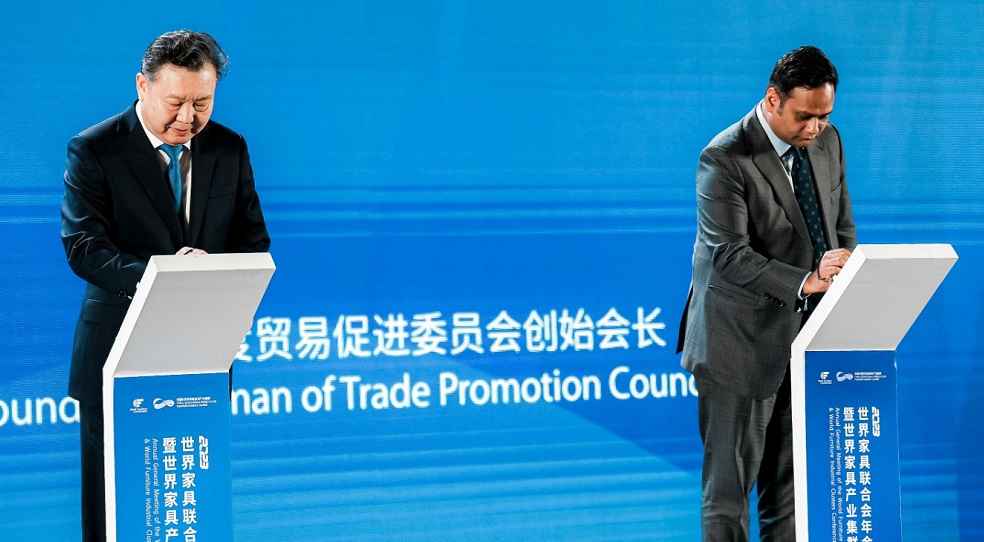An ambitious stride forward for the Trade Promotion Council of India (TPCI) materialized on Saturday as it announced a strategic partnership with the World Furniture Confederation. This alliance aims to carve out sophisticated industrial hubs dedicated to furniture manufacturing, targeting a more substantial stake in the global furniture market valued at an impressive $250 billion.
To provide some context, while the global market booms, India’s presence remains negligible. The European Union and China, for instance, dominate with combined furniture exports nearing $100 billion. Simultaneously, the US, standing tall as the globe’s premier importer, invests close to $72 billion in these goods each year.
Spotting this vast potential, TPCI Chairman Mohit Singla exudes confidence about the pact’s prospects. This partnership holds the promise for India to amplify its exports and diminish its heavy reliance on imports. The memorandum of understanding (MoU) between TPCI and the confederation endeavors to nurture profound ties with international furniture manufacturing titans.

Singla shed light on the fact that these Indian clusters would benefit from globally recognized best practices. “Recent study of the potential sector has revealed great demand for plug-and-play clusters as the only possible means of achieving competitiveness, which is much desired for import substitution and export prowess,” he further detailed.
Pointing to India’s intrinsic advantages, Singla remarked, “We have ample land, most affordable skilled labour, and supporting logistics and warehouse infrastructure. India enjoys zero duty on all considered products for export of furniture to the US market, which underlines the big advantage to enter the US market.”
Despite these advantages, challenges loom large. India’s furniture sector, predominantly rooted in handcrafted items, lacks organization. These upcoming clusters aim to bring about an industry metamorphosis, endorsing manufacturing processes that meet and potentially exceed global standards.

These efforts could also usher in significant foreign direct investment (FDI) in the domain. Beyond bolstering the exports, this synergy promises a substantial reduction in the import proclivity, Singla optimistically observed.
Presently, India foots an annual furniture import bill exceeding $600 million, with the global furniture behemoth, China, contributing more than half. Other significant exporters to India span nations like Malaysia, Germany, Italy, and Singapore.
On the home front, the furniture industry stands valued at approximately $5 billion, with export figures hovering around $1.5 billion annually. To galvanize domestic production and taper imports, the government has escalated the import duty on a range of furniture items, such as seats and bedding articles, from 20% to 25%.

This partnership could very well herald a transformative phase for India’s furniture industry. With deeper alliances and enhanced infrastructure, India seems on course to emerge as a formidable contender in the global furniture domain.
IMEX SECTOR | U.S., Mexico GM Corn Clash Shakes USMCA Trade Agreement Dynamics



